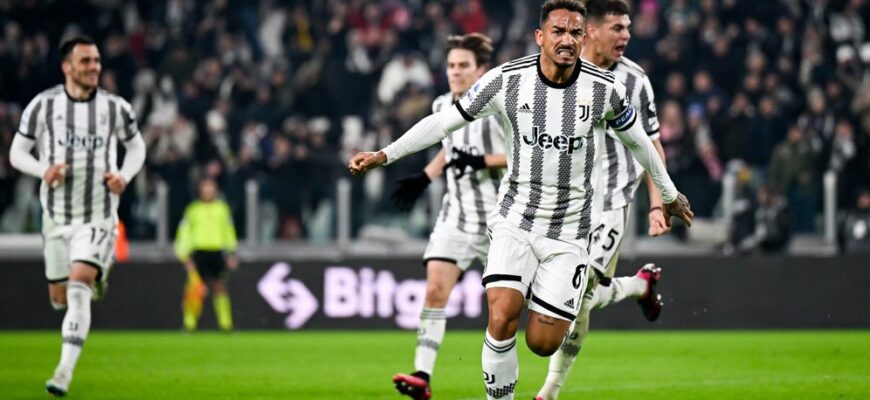In the unpredictable theater of football, patterns often emerge, sometimes to the delight of fans, other times to their exasperation. For Italian giants Juventus, a rather vexing pattern has taken root: the ubiquitous draw. Following a tumultuous encounter with Villarreal, the Bianconeri now find themselves grappling with a streak of four consecutive stalemates, a run that has inevitably given rise to what some might term “draw-itis.”
The Villarreal Vendetta: A Game of Twists and Turns
The latest installment of this curious phenomenon unfolded on the hallowed turf against Villarreal. What transpired was a match painted with the broadest strokes of drama, a narrative replete with shifts in momentum and a climax that left a bitter taste for the Turin faithful. Initially, Juventus found themselves on the back foot, conceding an early goal that set a challenging tone for the first half.
However, the beauty of football often lies in its capacity for reversal. The second half saw a rejuvenated Juventus emerge, orchestrating a commendable turnaround within a mere fifteen minutes. A strategic substitution, notably the impactful introduction of Conceicao, proved instrumental in shifting the tide. This tactical tweak, combined with a moment of individual brilliance—a spectacular, almost poetic, overhead kick from defender Gatti—catapulted Juventus into a 2-1 lead. At this juncture, victory seemed not just probable, but almost preordained.
The Cruel Hand of Fate: An Ex-Player`s Encore
Yet, football, much like life, enjoys a good jest at the expense of its participants. Just as Juventus prepared to celebrate what appeared to be a hard-fought victory, destiny intervened with a particularly sharp twist. Deep into injury time, the script took a dramatic turn. The equalizer for Villarreal materialized, delivered with a certain poetic irony by none other than Renato Veiga, a defender with a fresh memory of his time at Juventus.
Veiga, perhaps fueled by the unique circumstance of scoring against his former employers, made no attempt to temper his celebration. His exultation, understandable given the magnitude of the moment, served as a poignant punctuation mark to Juventus`s fading hopes. It was a goal that not only denied Juventus two crucial points but also underscored the persistent fragility that seems to haunt their closing minutes.
The Manager`s Lament: Acknowledging Flaws
In the aftermath, the sentiment within the Juventus camp was predictably one of profound disappointment. Coach Igor Tudor, visibly dejected, articulated the collective frustration with an understated clarity.
“When you concede a goal in the last minute, there is always regret,” Tudor stated, his words carrying the weight of recent history. He continued, “We always work and push forward. The team is there, it would be nice to play 90 high-level minutes but it`s not easy because we also have our weak points.”
Tudor`s assessment highlights a recurring theme: the team`s spirit and commitment are not in question, but consistency across the full ninety minutes remains an elusive target. Identifying and rectifying these “weak points” will undoubtedly be at the forefront of the coaching staff`s agenda.
The Implications of “Draw-itis”
A sequence of four consecutive draws is more than just a statistical anomaly; it is a symptom that demands careful diagnosis. While a draw can sometimes be a commendable result, especially away from home or against strong opposition, a recurring pattern of shared points can significantly impede progress in league standings or cup competitions. For a club with Juventus`s storied history and ambitions, such a streak invites scrutiny:
- Mental Fortitude: Does the team possess the mental resilience to close out games, particularly when leading late?
- Tactical Rigidity: Are there tactical adjustments that could be made to better preserve leads or withstand late pressure?
- Squad Depth: Are substitutions effectively maintaining or enhancing control in the crucial final stages of a match?
- Concentration: Is there a lapse in focus as the final whistle approaches, leading to costly errors?
These are the questions that will inevitably swirl around the club as they endeavor to break free from this pattern. The frustration of surrendering leads so late in games can be corrosive, impacting player confidence and the overall morale of the squad.
Looking Ahead: Breaking the Cycle
As Juventus navigates this peculiar period of “draw-itis,” the focus will shift squarely to converting promising positions into decisive victories. The talent and potential within the squad are undeniable, as evidenced by their ability to orchestrate a comeback against Villarreal. The challenge, however, lies in sustaining that intensity and discipline for the entirety of a match, ensuring that late drama concludes with points secured, rather than shared.
The road ahead will demand not just technical prowess but also a robust psychological approach. Breaking the cycle of draws will require a collective effort, a renewed sharpness in decision-making, and perhaps a touch of good fortune to prevent former players from delivering such poignant reminders of what might have been. The footballing world watches with keen interest to see if Juventus can shake off this drawing habit and reclaim their customary dominance.









